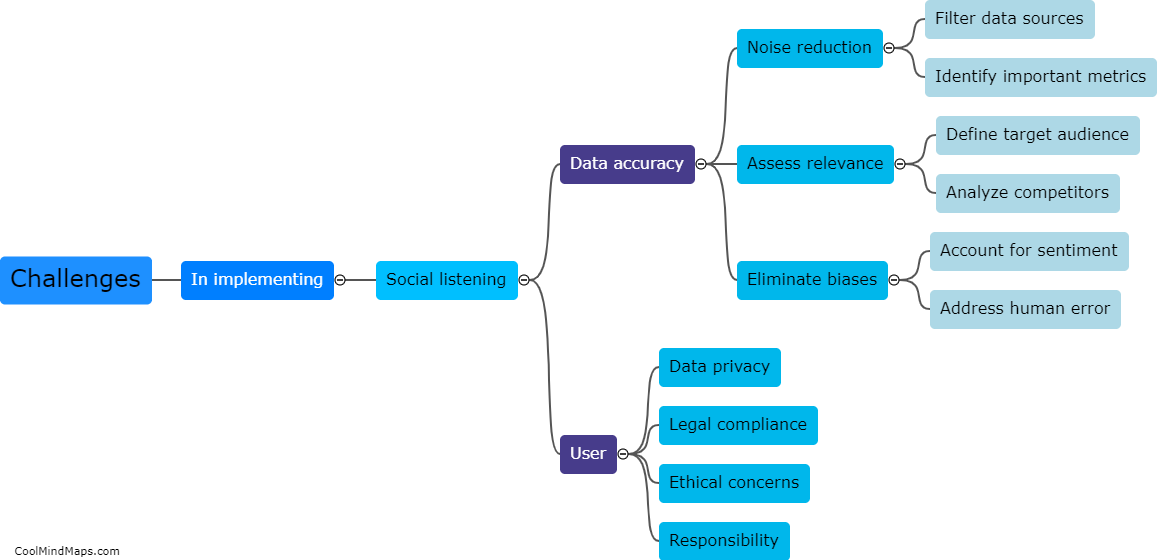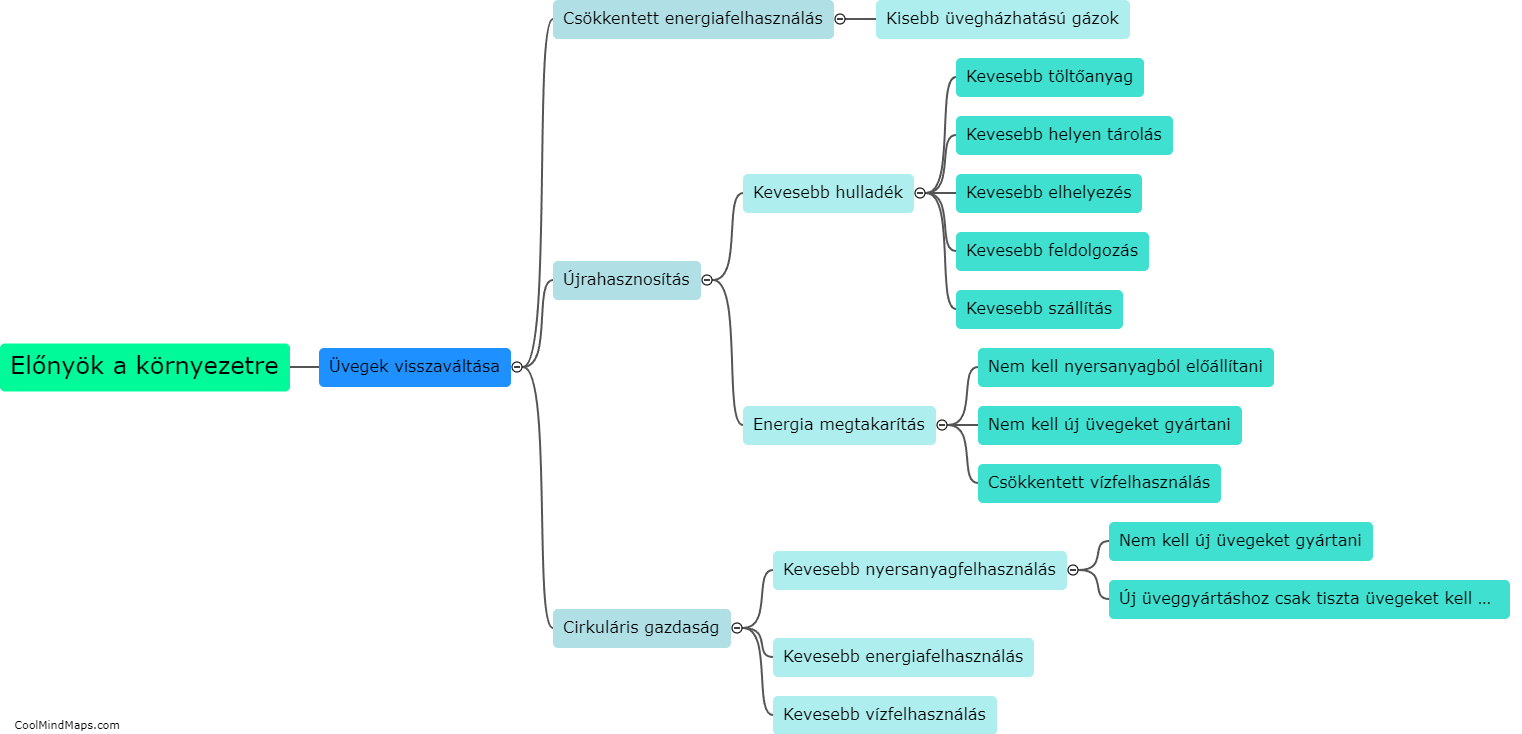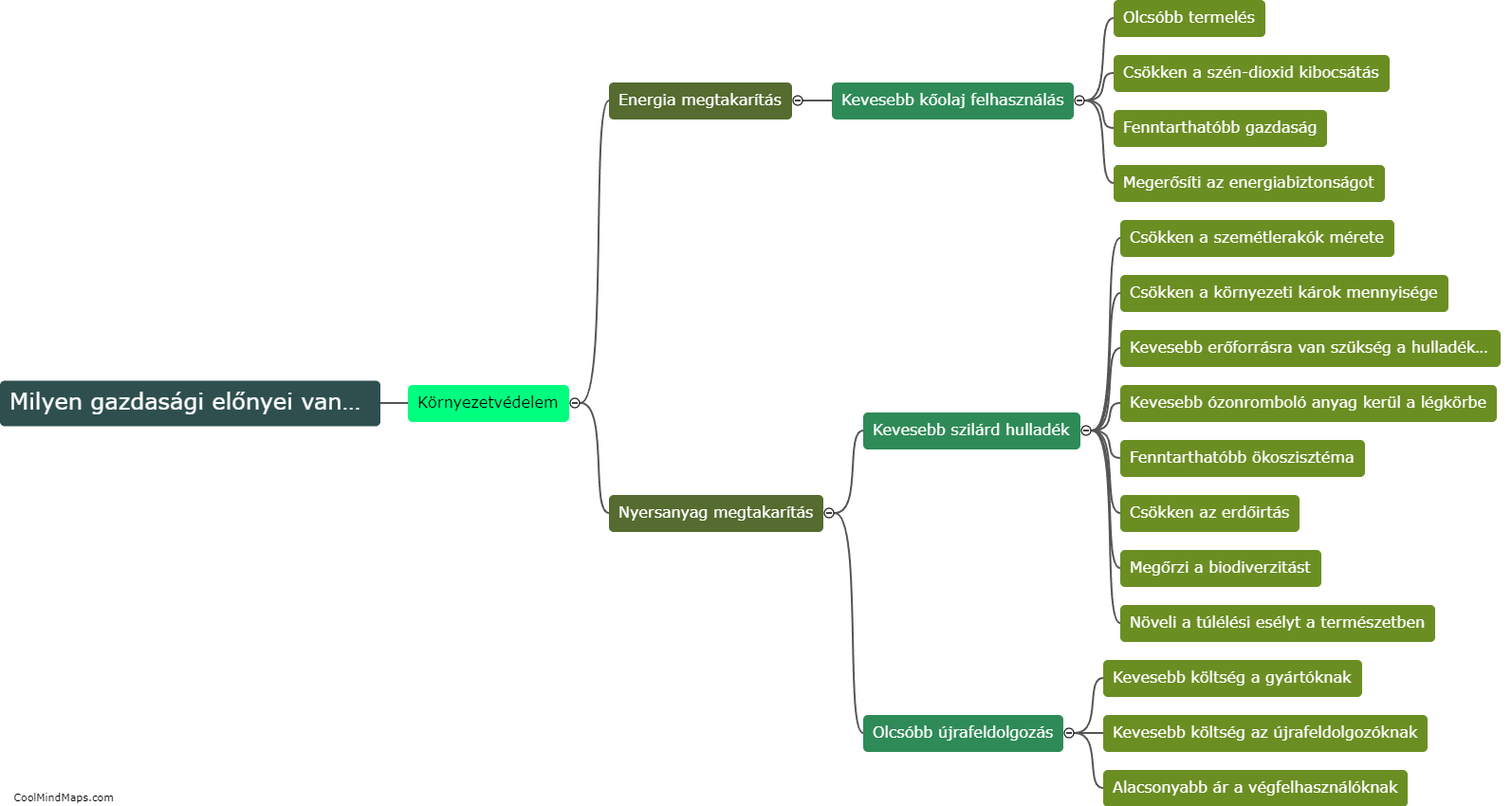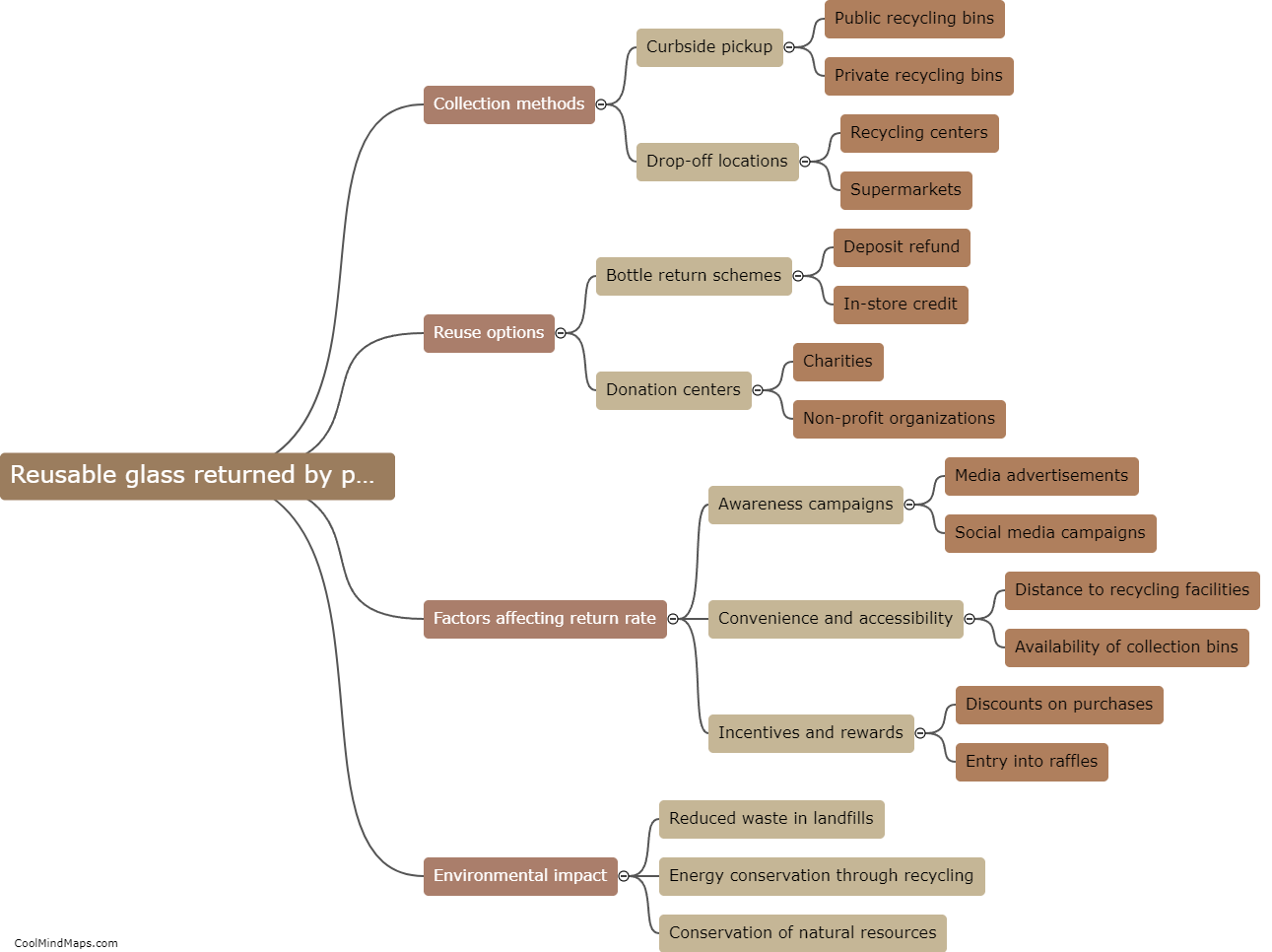How much reusable glass is scattered in nature?
Reusable glass, such as bottles and jars, is unfortunately a common sight in nature. Carelessly discarded by humans, these items find their way into ecosystems like forests, rivers, and oceans. The amount of reusable glass scattered in nature is substantial and poses a significant threat to wildlife and the environment. The slow process of decomposition makes glass persist for hundreds or even thousands of years, breaking down into smaller fragments known as microplastics. These microplastics not only harm animals through ingestion or entanglement but also contribute to pollution and the degradation of ecosystems. To mitigate the harmful impact of reusable glass waste on nature, proper waste management, recycling, and increased awareness about its consequences are crucial.
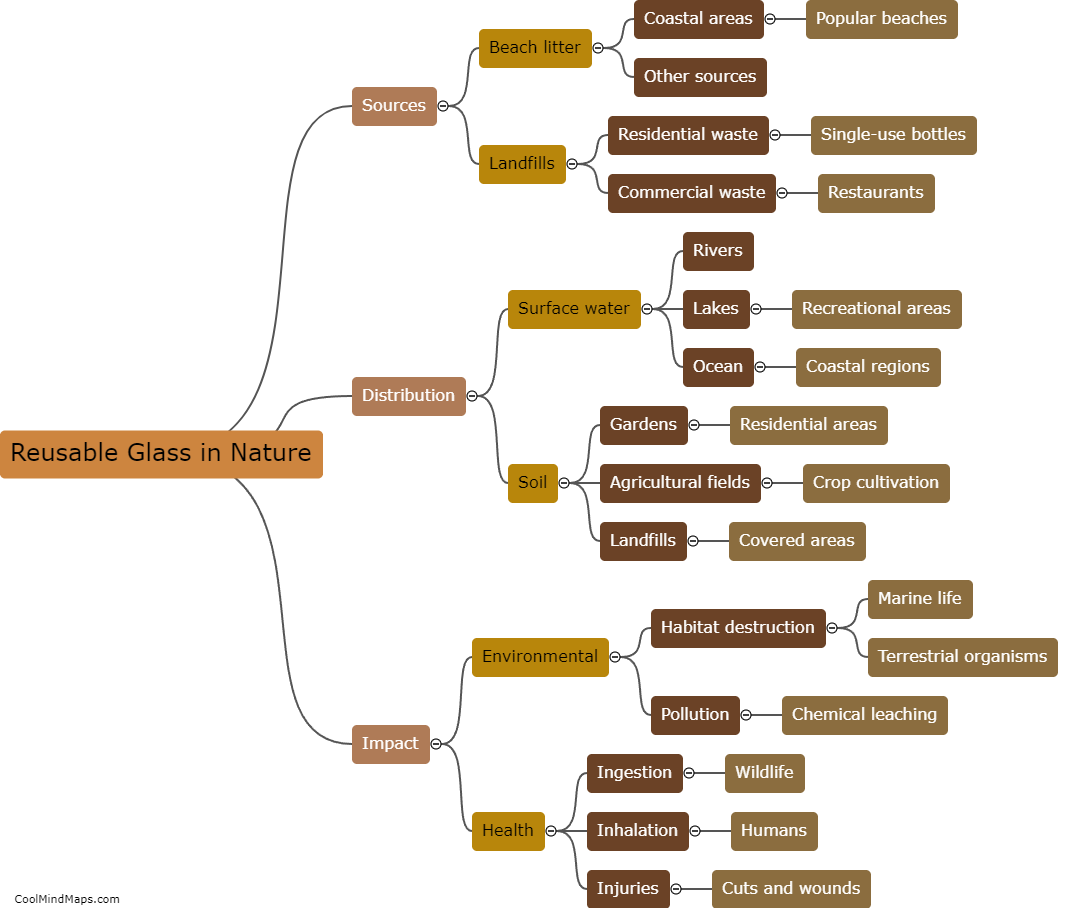
This mind map was published on 30 July 2023 and has been viewed 94 times.
